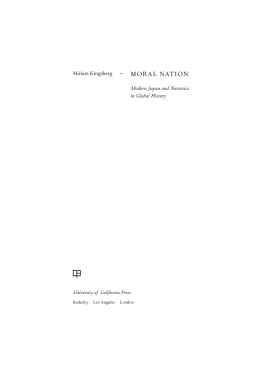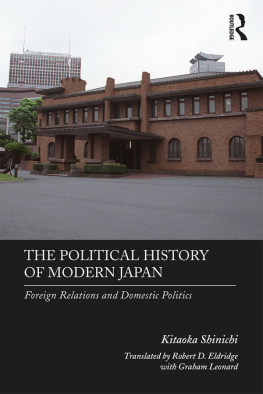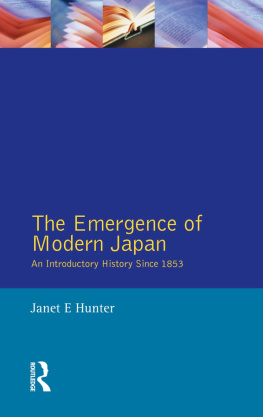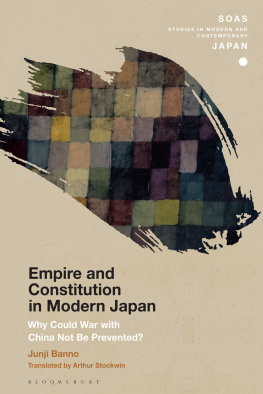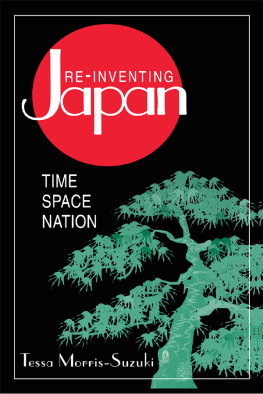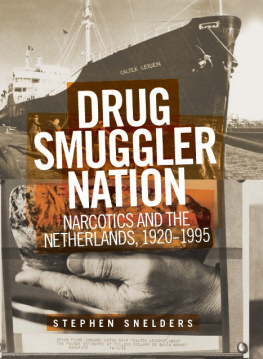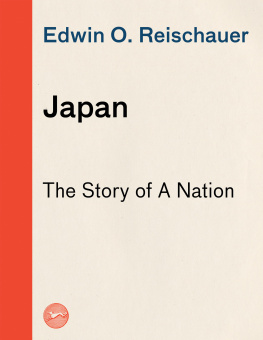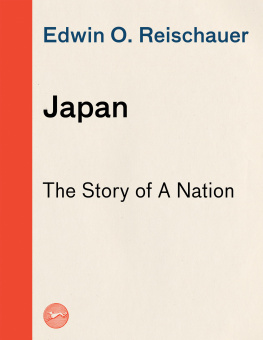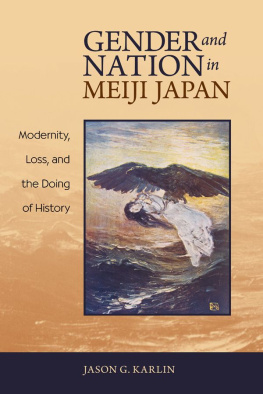The Philip E. Lilienthal imprint honors special books in commemoration of a man whose work at University of California Press from 1954 to 1979 was marked by dedication to young authors and to high standards in the field of Asian Studies. Friends, family, authors, and foundations have together endowed the Lilienthal Fund, which enables UC Press to publish under this imprint selected books in a way that reflects the taste and judgment of a great and beloved editor.
The publisher gratefully acknowledges the generous support of the Philip E. Lilienthal Asian Studies Endowment Fund of the University of California Press Foundation, which was established by a major gift from Sally Lilienthal.
Frontispiece. Title page of Majima Kan, Mayaku chdokusha to naku. S OURCE : Majima Kan, Mayaku chdokusha to naku: T-A wo ahen kara kaik seyo (Tokyo: Ajia seisaku kenkyjo, 1935).
Miriam Kingsberg | MORAL NATION |
Modern Japan and Narcotics |
in Global History |

University of California Press
BerkeleyLos AngelesLondon
University of California Press, one of the most distinguished university presses in the United States, enriches lives around the world by advancing scholarship in the humanities, social sciences, and natural sciences. Its activities are supported by the UC Press Foundation and by philanthropic contributions from individuals and institutions. For more information, visit www.ucpress.edu.
University of California Press
Berkeley and Los Angeles, California
University of California Press, Ltd.
London, England
2014 by The Regents of the University of California
Library of Congress Cataloging-in-Publication Data
Kingsberg, Miriam, 1981.
Moral nation : modern Japan and narcotics in global history / Miriam Kingsberg.
pagescm (Asia: Local Studies / Global Themes, 29)
Includes bibliographical references and index.
ISBN 978-0-520-27673-4 (cloth : alk. paper)
ISBN 978-0-520-95748-0 (e-book)
1. Drug abuseSocial aspectsJapanHistory.2. Drug trafficJapanHistory.3. JapanMoral conditions.4. JapanCivilization1868I. Title.
HV5840.J3K562013
362.2930952dc232013031720
Manufactured in the United States of America
21 20 19 18 17 16 15 14
10 9 8 7 6 5 4 3 2 1
In keeping with a commitment to support environmentally responsible and sustainable printing practices, UC Press has printed this book on Natures Natural, a fiber that contains 30% post-consumer waste and meets the minimum requirements of ANSI / NISO Z 39.48-1992 ( R 1997) ( Permanence of Paper ).
ASIA: LOCAL STUDIES/GLOBAL THEMES
Jeffrey N. Wasserstrom, Kren Wigen, and Hue-Tam Ho Tai, Editors
1. Bicycle Citizens: The Political World of the Japanese Housewife,
by Robin M. LeBlanc
2. The Nanjing Massacre in History and Historiography,
edited by Joshua A. Fogel
3. The Country of Memory: Remaking the Past in Late Socialist Vietnam,
by Hue-Tam Ho Tai
4. Chinese Femininities/Chinese Masculinities: A Reader,
edited by Susan Brownell and Jeffrey N. Wasserstrom
5. Chinese Visions of Family and State, 19151953 ,
by Susan L. Glosser
6. An Artistic Exile: A Life of Feng Zikai (18981975),
by Geremie R. Barm
7. Mapping Early Modern Japan: Space, Place, and Culture in the Tokugawa Period, 16031868,
by Marcia Yonemoto
8. Republican Beijing: The City and Its Histories,
by Madeleine Yue Dong
9. Hygienic Modernity: Meanings of Health and Disease in Treaty-Port China,
by Ruth Rogaski
10. Marrow of the Nation: A History of Sport and Physical Culture in Republican China,
by Andrew D. Morris
11. Vicarious Language: Gender and Linguistic Modernity in Japan,
by Miyako Inoue
12. Japan in Print: Information and Nation in the Early Modern Period,
by Mary Elizabeth Berry
13. Millennial Monsters: Japanese Toys and the Global Imagination,
by Anne Allison
14. After the Massacre: Commemoration and Consolation in Ha My and My Lai,
by Heonik Kwon
15. Tears from Iron: Cultural Responses to Famine in Nineteenth-Century China,
by Kathryn Edgerton-Tarpley
16. Speaking to History: The Story of King Goujian in Twentieth-Century China,
by Paul A. Cohen
17. A Malleable Map: Geographies of Restoration in Central Japan, 16001912,
by Kren Wigen
18. Coming to Terms with the Nation: Ethnic Classification in Modern China,
by Thomas S. Mullaney
19. Fabricating Consumers: The Sewing Machine in Modern Japan,
by Andrew Gordon
20. Recreating Japanese Men,
edited by Sabine Frhstck and Anne Walthall
21. Selling Women: Prostitution, Markets, and the Household in Early Modern Japan,
by Amy Stanley
22. Imaging Disaster: Tokyo and the Visual Culture of Japans Great Earthquake of 1923 ,
by Gennifer Weisenfeld
23. Taiko Boom: Japanese Drumming in Place and Motion,
by Shawn Bender
24. Anyuan: Mining Chinas Revolutionary Tradition,
by Elizabeth J. Perry
25. Mabiki: Infanticide and Population Growth in Eastern Japan, 16601950,
by Fabian Drixler
26. The Missionarys Curse and Other Tales from a Chinese Catholic Village,
by Henrietta Harrison
27. The Nature of the Beasts: Empire and Exhibition at the Tokyo Imperial Zoo,
by Ian Jared Miller
28. Go Nation: Chinese Masculinities and the Game of Weiqi in China,
by Marc L. Moskowitz
29. Moral Nation: Modern Japan and Narcotics in Global History,
by Miriam Kingsberg
To my family
CONTENTS
ILLUSTRATIONS
FIGURES
MAP
TABLES
ACKNOWLEDGMENTS
I have long anticipated publicly thanking the people who have made it possible for me to write this book. At Berkeley, where I was fortunate to receive my graduate training, Andrew Barshay supervised this project in its early stages and facilitated my development as an independent researcher. Wen-hsin Yeh made me welcome in the China field; Steve Vogel, in social science. No one is more responsible for teaching me how to think, write, and be in the academic profession than Mary Elizabeth Berry. The critical interlocutor inside my head speaks in her voice.
In Japan, Nakami Tatsuo, Enatsu Yoshiki, Kat Kiyofumi, and Matsushige Mitsuhiro opened many doors for me. During my year in China, Zhang Fuhe and Yamamoto Y assisted me with archival materials and navigating the research landscape in Beijing, Dalian, and Shenyang. Meg Rithmire became a lifelong friend during many trips around Dongbei, some fruitful, others simply freezing. I am also grateful for her assistance and companionship during my time in Cambridge. A two-year appointment to the Harvard Academy for International and Area Studies allowed me to completely reimagine this project. Jorge Domnguez, Kathleen Hoover, Larry Winnie, and above all Elizabeth McGuire helped me to enjoy as well as endure the process. The Academy also supported a one-day workshop on my manuscript, attended by the late Barbara Brooks, David Courtright, Frank Diktter, Andy Gordon, Arthur Kleinman, and Bob Tadashi Wakabayashi. I particularly thank David for sharing his expertise in global drug studies, and Bob for saving me from embarrassing errors of language and fact. Frank strongly supported the publication of this book. I was not able to incorporate all his suggestions into the final version, but he, David Ambaras, and an anonymous reviewer at the University of California Press gave me much to consider at the end of my revisions.

